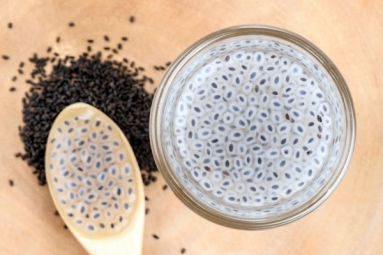
(Image source from: Canva.com)
The arrival of monsoon rains can provide a much-needed respite from the scorching summer sun and transform the environment into a vibrant green landscape. However, this season also brings about an increase in infections, gastrointestinal issues, and skin problems. As humidity levels rise, so too do the myths surrounding health and hygiene. To debunk some prevailing misconceptions before they mislead you, we consulted an expert. Dr. Pratayksha Bhardwaj, a specialist in diet and weight management, clarifies several widespread health myths that reemerge each rainy season.
Should You Reduce Your Water Intake During Monsoon?
Truth: Dr. Bhardwaj points out that many individuals tend to consume less water during this season since they don't feel as thirsty. Nonetheless, your body still engages in essential functions, including sweating and urination, leading to fluid loss. Dehydration can quietly creep in, bringing feelings of fatigue and weakening your immune system.
Is It Safe to Indulge in Street Food When It's Raining?
Truth: Despite the allure of hot snacks, street food is particularly vulnerable to contamination during the monsoon. According to Dr. Bhardwaj, factors such as standing water, unsanitary food handling, and rain-related contamination create optimal conditions for bacterial and viral growth. He advises opting for fresh, home-cooked meals, drinking filtered water, and steering clear of raw salads when dining out.
Do Mosquitoes Only Bite After Sundown?
Truth: Dr. Bhardwaj reveals that the Aedes mosquito, responsible for transmitting dengue and chikungunya, is active during the daytime. Consequently, it is essential to apply mosquito repellent throughout the day and wear long-sleeved clothing. He also encourages the removal of stagnant water from your surroundings at all times, as it can become a mosquito breeding site.
Are Monsoon Allergies Merely Temporary?
Truth: Allergies that occur during the monsoon can become chronic if not properly addressed from the start. Conditions such as fungal infections and respiratory issues thrive in damp environments, affecting areas like the feet, armpits, and groin. Dr. Bhardwaj stresses the importance of avoiding wet clothing, promoting the use of dry garments that facilitate air circulation, and changing out of damp clothes promptly to prevent infections.
Ways to Enhance Your Health During the Monsoon Season.
Strengthen Immunity: Incorporate foods high in vitamin C, like lemons, amla, guava, and capsicum into your daily diet. Also include turmeric milk, tulsi tea, and ginger mixtures for added benefits.
Opt for Light and Clean Meals: Steer clear of heavy, oily dishes and leftovers. Given that digestion tends to slow during the rains, light meals such as khichdi, soups, or steamed dishes are preferable.
Maintain Dryness and Cleanliness: Fungal infections thrive in moisture, so it's essential to regularly disinfect your living spaces. Sun-dry clothes and mats when possible, keep windows open to eliminate musty odors, and take measures to prevent mold growth.
Take Care of Your Feet: Fungal infections can be prevalent during the monsoon season. It's vital to keep your feet clean and dry, wear waterproof footwear, and avoid walking through puddles.







